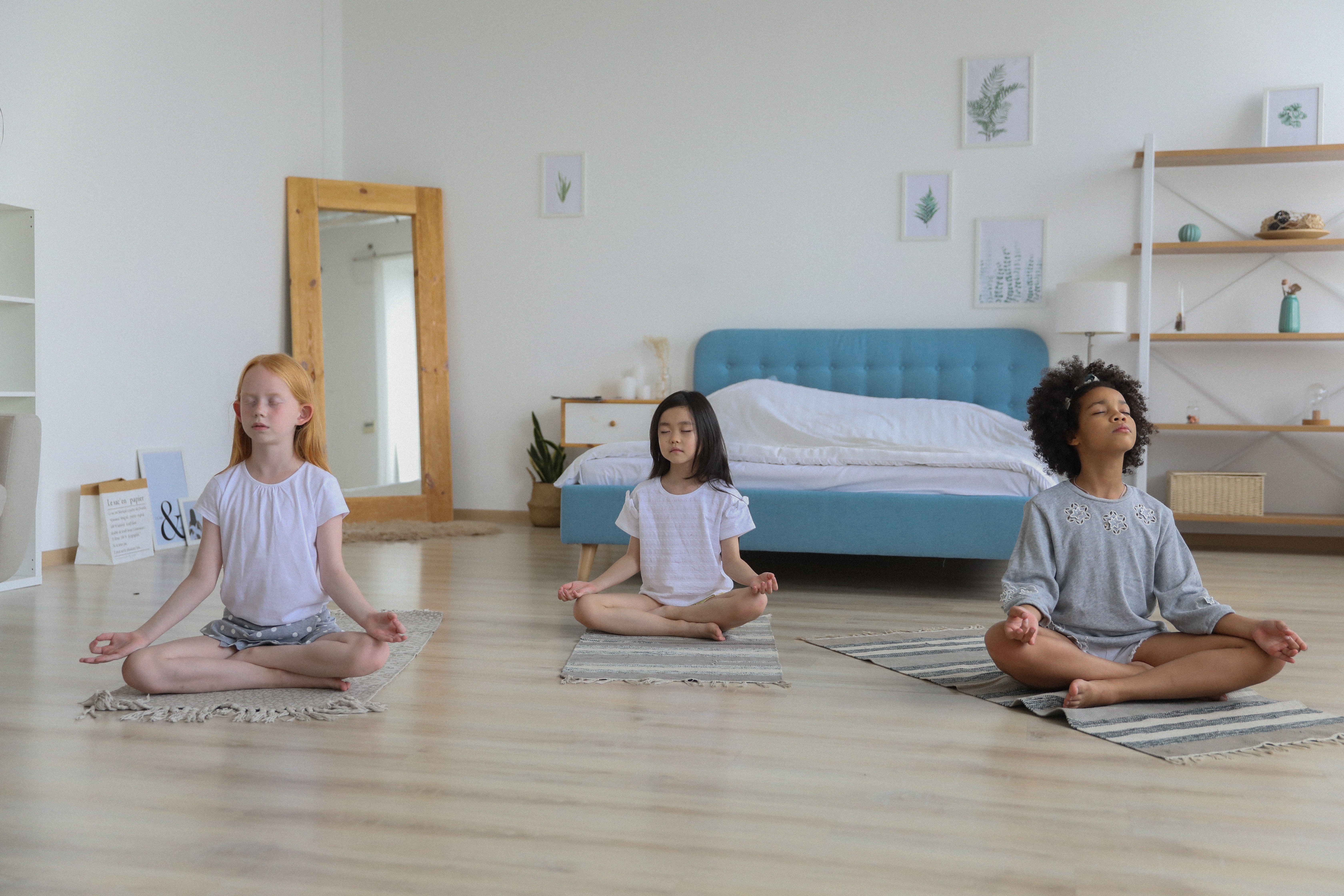-1.png)
EtonHouse Singapore
The pandemic has brought about uncertainty and stress, with the irregular changing arrangements of schools, which can affect a child's mental wellbeing. It is important that they remain happy and positive. Mindfulness is an effective technique that helps children develop a deeper sense of self-awareness, gain better control of their emotions and improve their focusing skills amongst other benefits. Here are 3 easy and fun ways to introduce practising mindfulness to your child.
1) Breathing with a pinwheel

Illustration: The New York Times
Getting to know our bodies is an essential part of mindfulness practice. This starts with our breath. Breathing exercises can help you become more familiar with the rhythms of your body.
Step 1: With a pinwheel for your child and yourself, sit with your back straight and your body relaxed.
Step 2: Blow on your pinwheels together using long, deep breaths, and notice how you feel. Do you feel calm and relaxed? Is it easy or hard to sit still?
Step 3: Now blow on the pinwheels using short, quick breaths. How does your body feel now? Do you feel the same way after breathing quickly as you did after breathing slowly?
Step 4: Now blow on the pinwheels normally. How does this feel?
Step 5: What did you notice about how different ways of breathing makes you feel?
2) Seeing Clearly

Illustration: The New York Times
A glitter ball can help us understand the connection between mind and body.
Step 1: Take a glitter ball, a snow globe or a clear jar of water with baking soda in it, and give it a shake.
Step 2: The glitter will whirl about and the water will become cloudy. As it does, notice how you can no longer see through the water.
Step 3: Stop shaking the ball and let the glitter settle. As it does, place your hand on your belly and feel your breathing.
Step 4: Once the glitter has settled, think about what happened. The glitter didn't go away, but you can now see clearly.
Step 5: Think about how that's like the way our minds work: When our thoughts are racing, we can't think clearly. Shake the glitter ball once more and watch the glitter settle.
3) Pass the Cup

Illustration: The New York Times
By passing a cup full of water without spilling a drop, we can cultivate attention and learn about teamwork.
Step 1: Prepare by filling a small cup of water about one inch from the rim.
Step 2: Paying close attention, and trying not to spill, silently pass the cup of water back and forth.
Step 3: Look at the cup and at each other, feeling with your hands, moving your arms slowly.
Step 4: Now try to pass the cup with your eyes closed, while still being silent. What other senses do we need to pay attention to? Can you hear the rustling of clothing? Or feel each others' hands as you work to pass the cup?
Step 5: If there are three people or more, sit in a circle and pass the cup around. After the first round, change directions.

